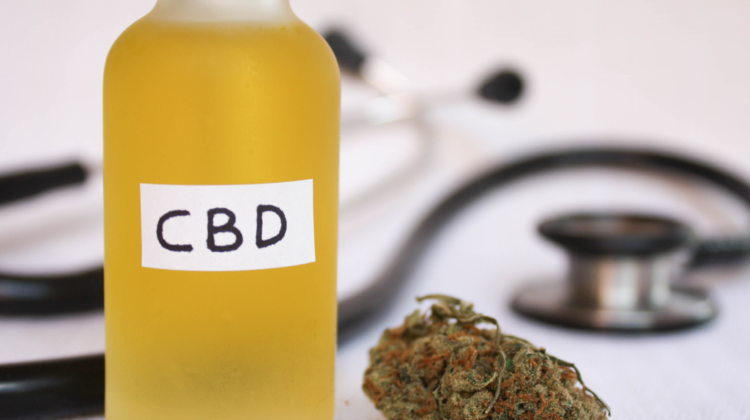
Photo credit: Sofiacorte
Throughout the history of pharmacology, there are countless examples of physicians prescribing cannabis as a type of panacea. Cannabis was widely popular in the 19th century until it faded away from an official medicine in the beginning of the 20th century, and reappeared in the new millennium.
Today, despite its widespread usage and rising legalization, the Drug Enforcement Administration (DEA) still categorizes cannabis as a Schedule I substance alongside heroin and LSD. This makes it impossible to conduct clinical research, which is so in need, according to a 2019 JAMA Psychiatry study. It shows that dependence, also known as cannabis use disorder (CUD), has increased among young people who reside in places where recreational cannabis is allowed.
The American Psychiatric Association’s Diagnostic and Statistical Manual of Mental Disorders (DSM-5) defines CUD using a set of criteria that identify a user’s behavioral patterns. These criteria are:
- Cannabis is frequently used in large amounts or over a lengthy duration of time.
- There is a constant desire to reduce or regulate cannabis usage, as well as failed efforts to do so.
- Craving for cannabis or a strong urge to ingest cannabis.
- Tolerance, or in other words a requirement for significantly more cannabis to induce intoxication or the intended effect starts to build up.
Dependency
The Journal of Molecular Psychiatry defines CUD as chronic cannabis use over a period of years.
“Chronic cannabis smoking can lead to tolerance and withdrawal symptoms, the two hallmarks of dependence,” the journal reports.
Long-term cannabis usage brings changes to one’s body, changing the way the drug is absorbed, metabolized, and excreted. It also changes the way the drug interacts with target cells, according to 2011 research in the Journal of Molecular Psychiatry.
In this case, for users to get their desired effect, they must take bigger doses of cannabis. This strengthens tolerance and further down-regulates cannabinoid receptors in the brain. In other words, it takes more cannabis to achieve the desired effects, and cannabinoids receptors become desensitized.
Withdrawal and Treatment
One-half of those undergoing treatment for CUD experience withdrawal symptoms, reports JAMA Network Open.
Anxiety, irritability, sadness, restlessness, insomnia, gastrointestinal problems, and a loss of appetite are all possible symptoms, according to research by Psychiatric Clinics of North America. Experts also associate rhythmic movement disorder with withdrawal from cannabis.
The majority of withdrawal symptoms appear within the first week of abstinence and fade after a few weeks.
In terms of treatment, experts recommend abstaining from cannabis for at least 30 days.
Responsible Cannabis Use
Long-term, non-stop cannabis use may hinder health, career, or performance.
“Abuse means harm. Some cannabis use is harmful; most is not. That which is harmful should be discouraged; that which is not need not be,” says NORML, a nonprofit public-interest advocacy group that represents cannabis users.
It is important to note that issues with cannabis only affect a small percentage of cannabis users. According to the Psychiatric Clinics of North America, “1.8% [of consumers] have met diagnostic criteria for cannabis abuse or dependence within the past year. Among individuals who have ever used cannabis, conditional dependence (the proportion who go on to develop dependence) is 9%.”
However, some experts predict that as many as 19.5% of lifetime cannabis users may develop CUD, reports the Journal of Cannabis Research. In this study, a majority of respondents smoked daily, and preferred popular high-potency products like hash or concentrates. However, many respondents seemingly used it at the end of the day as a sleep aid. Ultimately, the study concluded that more research is necessary.
At the end of the day, millions of people with dozens of health issues rely on cannabis. However, developing a healthy relationship with cannabis, and making stops in regular usage once in a while should prevent users from experiencing such things as CUD.



CUD is crap. Why are you guys reposting this nonsense? I’m not disagreeing there could be some slight withdrawal symptoms, but yet marijuana, does not activate the brain as in other addictive things such as caffeine cocaine heroin. The brain does not light up the same way therefore is not addictive in that light. I’m pretty sure this is a government funded report that you guys are reading off of.
Cannabis is what we do with it = there are no disorders per se, instead UNSAFE TITRATION and UNSAFE INPUTS (NOT “chemical free”) 🙂
“Please put some Hemp (“salad bar”) on the Weed” = NO MORE ADDICTION, NO MORE paranoia, psychosis, anxiety = THIS IS A SKILL for Patient/Public Safety 🙂
Cannabis is what we do with it 🙂
No disorders if we learn the skill: “Please put some hemp on the weed” 🙂
HOMEOSTATIC HIGHS 🙂